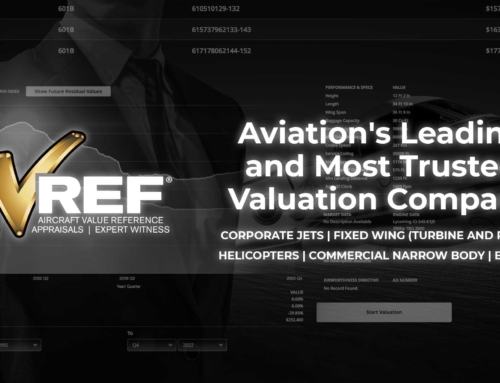By Doug Gollan
Reasons private jet owners, individuals, and companies buy jet cards include supplemental lift for family members and executives, as well as specialized missions where their current aircraft aren’t a fit. It’s also not uncommon for aircraft owners to buy jet cards for that transition period between selling an existing airplane and getting the new one onboard since timing doesn’t always mesh perfectly. At Private Jet Card Comparisons, I see it all, from subscribers who buy 10 hours a year to cover their snowbird flights to head-of-state buyers who need 500+ hours.
Now, get ready to see something nobody in the industry has seen before. As you probably know, the CARES Act suspended the 7.5% Federal Excise Tax collection through year’s end.
The taxable event is not when you fly, but when you buy it. That’s simple enough for an on-demand charter flight. Buy the flight in December, fly in January, save the FET.
What wasn’t clear is how that translates to prepaid jet cards. It still isn’t.
The IRS only points interested parties to a non-binding internal memo that dates back to 2015. You can read the full notice here.
It compares jet cards to the type of gift cards sold by Starbucks and the airlines in one scenario. The IRS says this genre doesn’t count as a transaction until you book and pay for your ticket. In other words, you buy a gift card in December but don’t call up and book until 2021, after the FET holiday is over, you owe the 7.5% tax.
A second scenario involves a jet card for a specific aircraft type. In the memo, it’s non-refundable and has a fixed term. If you want to fly on a different aircraft type – many jet cards allow you to upgrade or downgrade – you would have to use separate funds to do so. It also infers your deposit needs to be used exclusively for air travel. In other words, car service and concierge services would need to be billed separately.
Needless to say, only a couple of companies initially advertised their jet cards as being FET free for the life of the card or until your deposit ran down. The fact that one of them happened to be NetJets attracted a lot of attention.
It’s been a good summer for $800 per hour tax attorneys. Their advice seems to be that your typical jet card indeed creates a taxable event when you buy, and when you buy, you make your deposit.
All of a sudden, there are over a dozen jet card sellers now promoting to clients that if they buy before the end of the year when the FET holiday expires, flights will save the 7.5% for the life of the card…or funds, with some saying funds never expire. In other words, you could conceivably be taking tax-free flights in 2030.
A promotion from Magellan Jets, a Boston-based broker, includes a table showing that if you buy 100 hours on a Gulfstream G450, you can save over $90,000, so not small change. NetJets even launched 100-hour cards. Previously they only sold 25 and 50-hour increments.
But what happens if the IRS decides at some point that the taxable event is when you book your flight?
In terms of regular business, operators don’t always collect and remit FET on trips sold through brokers. Via a check-box or letter, the broker can pledge that they pay the IRS directly on behalf of their customer.
The IRS points to Code, Section 4263 (c). Under Payment of tax, it reads, “Where any tax imposed by section 4261 is not paid at the time payment for transportation is made, then, under regulations prescribed by the Secretary, to the extent that such tax is not collected under any other provision of this subchapter, such tax shall be paid by the carrier providing the initial segment of such transportation which begins or ends in the United States.”
In other words, if the broker doesn’t collect the tax, the operator is responsible. That’s good news for customers. It indicates the IRS wouldn’t come after the jet card buyers, UHNWs, and companies who hardly want to trigger an audit. It goes without saying, operators are concerned they could have a future tax liability not paid by brokers.
The last question is the jet card contract between customer and provider. Does that contract allow the provider to come after the customer to collect the tax if the IRS later says these pay now, fly tax-free offers were incorrect?
NBAA’s position is that the tax-waiver was designed to pump money into the decimated aviation industry, and that’s what these deals are doing. The industry is still operating 20% below pre-pandemic levels, there is pricing pressure, and both brokers and operators need every bit of support they can get.
Should things change, don’t expect a quick resolution. The IRS typically tries to negotiate first. Those who are being asked to pay typically engage those $800 per hour lawyers to fight the taxman. These cases can stagnate for years.
The CEO of one jet card seller told me, if Apple paid an extra 1% of tax, that would be more than total jet card revenues. Last year Apple had a top line of over $260 billion.
That said, we all know private aviation, big companies, and UHNWs, when mixed, often become a target for politicians and the media. If it does at some point in the future, it makes the headlines or a stump speech; you can say you read about it here first. In the meantime, as we get closer to the end of the year, expect your clients’ inboxes to start seeing more of these offers as more jet card sellers decide they don’t want to be at a price disadvantage versus competitors.
Doug Gollan is Founder and Editor-in-Chief of Private Jet Card Comparisons, an online buyer’s guide that helps consumers find the best private aviation solutions and providers for their needs.
For information on appraising your aircraft, please contact Jason Zilberbrand, ASA at Jason@VREF.com.




